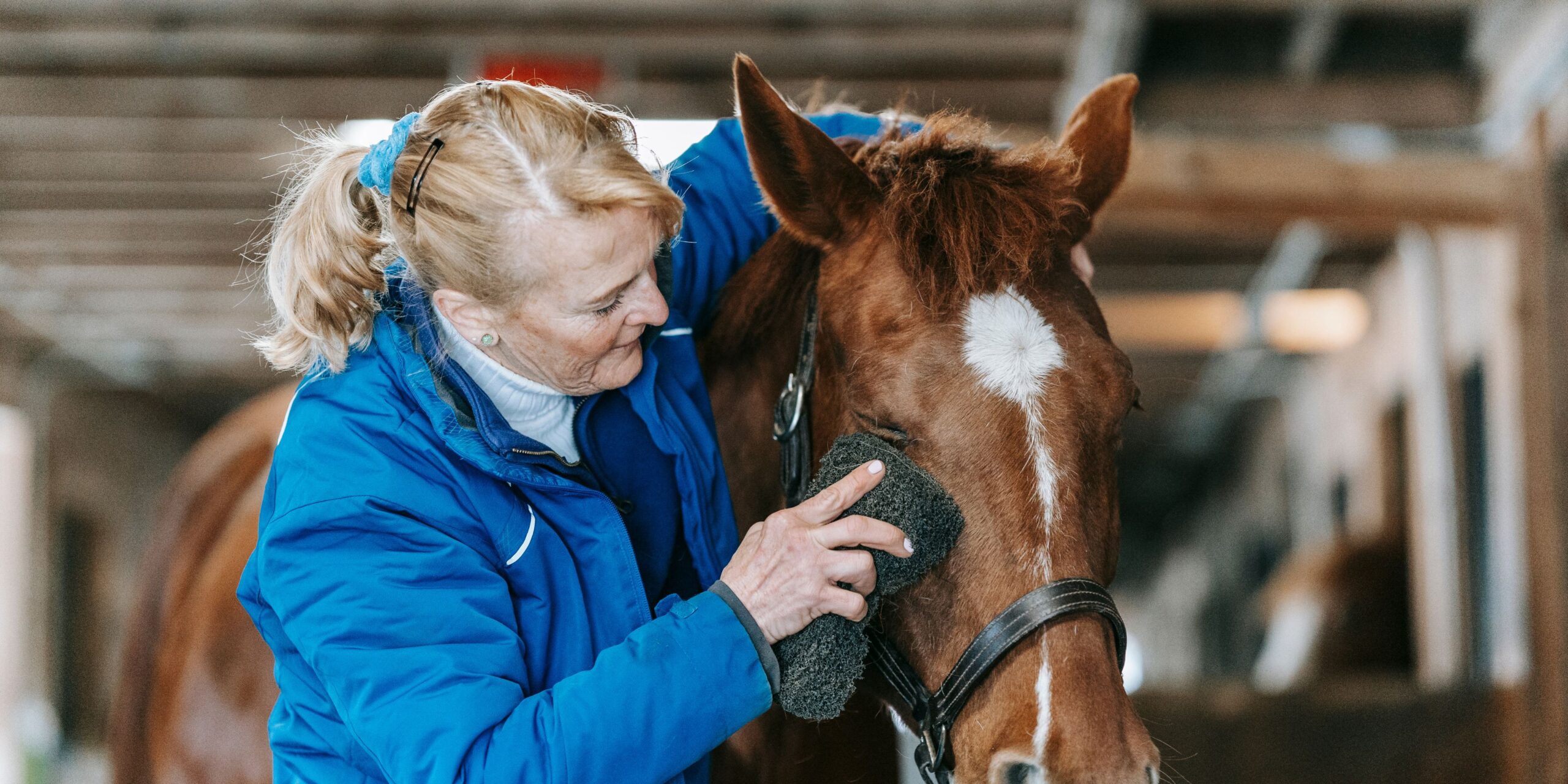Equine Therapy (Equine-Assisted Therapy)
Horses are incredibly intuitive and responsive to human emotions, making them ideal partners in equine-assisted therapy (EAT). This practice involves therapeutic activities with horses to support people facing psychological challenges like PTSD, depression, anxiety, and addiction.
Through equine therapy, you engage in activities like grooming, feeding, and leading a horse in a safe and structured setting, guided by a therapist or trained facilitator. These interactions offer a powerful way to build trust, develop emotional regulation, and boost confidence.
How Equine Therapy Works
Equine therapy is a hands-on approach, focusing on activities such as grooming, feeding, and leading horses in a calm, structured setting. The sessions are often unmounted, with the horse unsaddled and free to interact naturally. Guided by a therapist, you’ll observe the horse’s responses to your actions, which can reveal insights into your feelings and reactions. Over time, these sessions can enhance self-awareness, emotional resilience, and interpersonal skills.

The Benefits of Equine Therapy
Equine therapy offers various benefits:
Improving Emotional Regulation
One of the main benefits of equine-assisted therapy is its ability to help people regulate their emotions. The calm, grounded presence of horses can help you learn to manage intense emotions and overwhelm, reduce anxiety and stress, and become more attuned to your feelings.
Building Nonverbal Communication Skills
Horses communicate primarily through body language. Equine therapy can help you to become mindful of your nonverbal cues while staying calm and clear in your body language.
Soothing the Nervous System
Contact with horses can trigger the release of endorphins, the feel-good hormone that helps calm the nervous system. This is particularly beneficial for reducing symptoms of PTSD and stress.
Boosting Self-Esteem and Confidence
Interacting with horses in a safe environment can help you overcome your fears and build trust and confidence in your ability to lead, communicate, connect, and promote healing.
Getting Started with Equine Therapy
If you’re considering equine therapy, consult a mental health professional to explore if it’s right for you.
Equine therapy programs are available across Australia in individual and group settings. Look for practitioners certified in equine-assisted therapies to ensure a safe, therapeutic experience.
Organisations like the Equine Psychotherapy Institute set standards and train practitioners in these therapies and can guide you in finding qualified practitioners.
Note: The cost and location may limit accessibility for some, so inquire about options in your area.

Frequently Asked Questions (FAQ)
What mental health conditions can Equine Therapy help with?
Equine therapy can help with mental health conditions such as PTSD, anxiety, addiction, social anxiety, and neurological and developmental disorders.
Is Equine Therapy safe?
Equine therapy is safe when conducted by a trained professional who understands the nuances of working with horses and people in a therapeutic setting.
How often should I practice Equine Therapy?
Frequency depends on individual goals. Some benefit from weekly sessions, while others may need less frequent visits. Your therapist can help create a plan suited to your needs.
Can I practice Equine Therapy at home?
It’s generally recommended to engage in equine therapy under the guidance of a certified practitioner in a structured setting.
Certain activities may be practised outside of formal therapy if you have access to a horse and are knowledgeable about safe handling.
Does scientific research support Equine Therapy?
Yes, there is a growing body of research to support equine therapy as a complementary therapy for various mental health challenges and neurological and developmental disorders.
